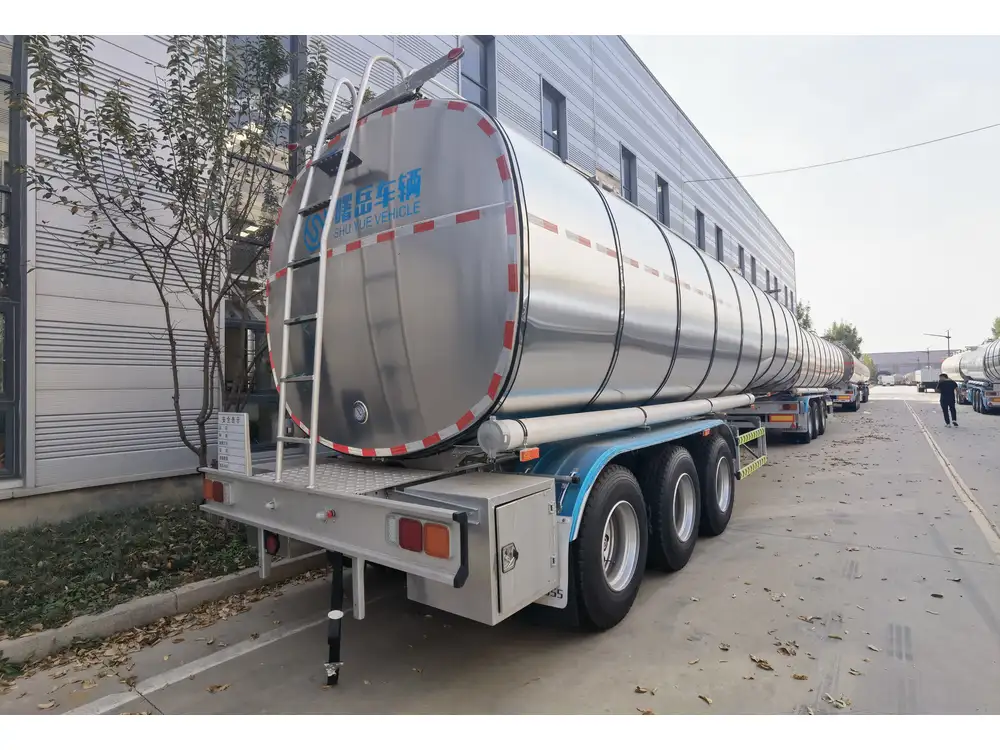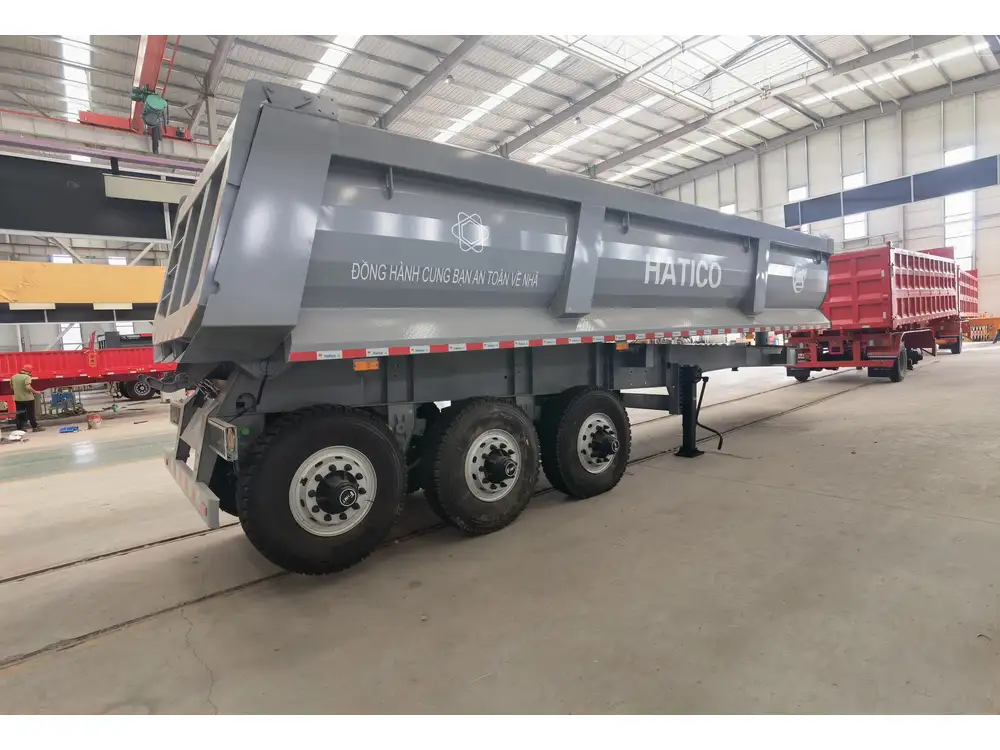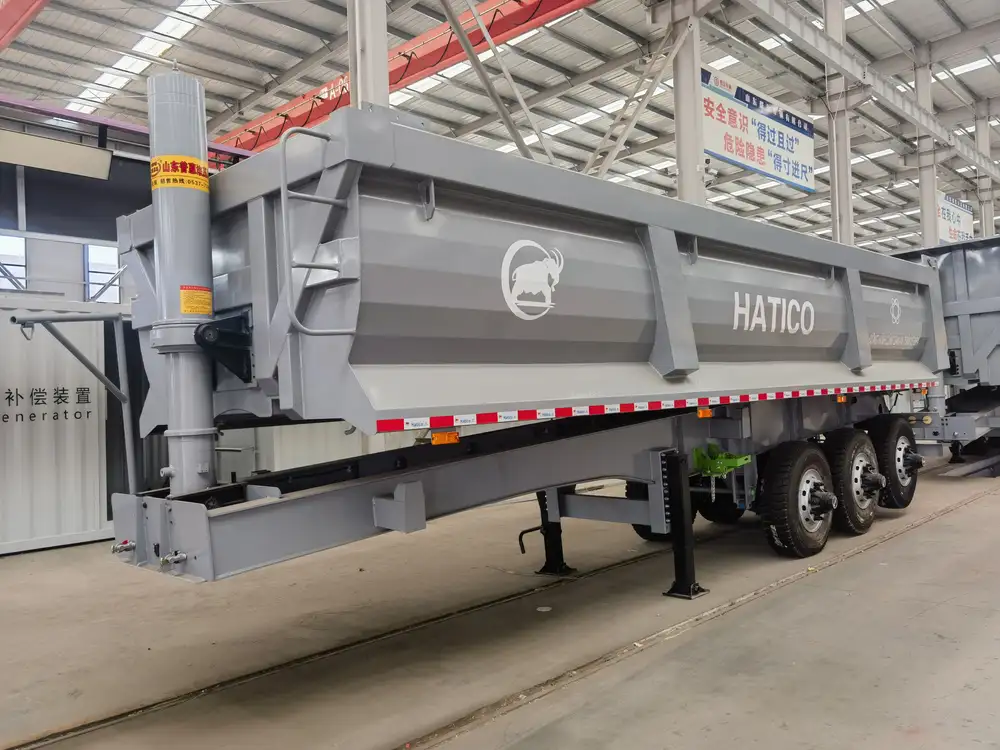When it comes to maintaining and operating a dump trailer, understanding the types of fluids required for optimal performance is essential. This article aims to provide extensive insights into the fluids needed for dump trailers, focusing on hydraulic fluid, lubricants, and maintenance best practices to ensure longevity and efficiency.
Understanding Dump Trailers: A Brief Overview
Dump trailers are specialized vehicles designed to transport materials and unload them through hydraulic tipping mechanisms. These trailers come equipped with hydraulic systems that require specific fluids, along with various components that need proper lubrication to function seamlessly. Understanding the role each fluid plays can significantly affect the performance and durability of the trailer.
Key Components of a Dump Trailer Fluid System
| Component | Function |
|---|---|
| Hydraulic System | Powers the tipping mechanism for unloading materials. |
| Brake System | Ensures safety by enabling effective braking of the trailer. |
| Chassis | Requires lubrication for smooth movement and durability. |
| Tires | Depend on proper inflation and maintenance fluids. |

Types of Fluids for Dump Trailers
1. Hydraulic Fluid
Importance: Hydraulic fluid is the lifeblood of any dump trailer, essential for powering the hydraulic cylinders that enable tipping.
Types:
- Mineral Oil-Based Fluids: The most common type, offering good lubrication properties and thermal stability.
- Biodegradable Fluids: Critical for environmentally conscious operators, these fluids break down naturally, reducing environmental impact.
- Water-Based Fluids: Less common, but used in specific applications, they can mitigate fire risks.
Selection Criteria: When choosing hydraulic fluid, consider:
- Operating temperatures
- Viscosity requirements
- Compatibility with seals and hoses
Top Picks:
- ISO VG 32: Optimal for moderate climates.
- ISO VG 46: Best for hotter climates with increased viscosity requirements.
2. Lubricants
Significance: Different components of the dump trailer, including axles, bearings, and gears, require specific lubricants to reduce friction and wear.
Categories:
- Grease: For wheel bearings and pivot points, offering high pressure resistance. Lithium-based greases are a common choice.
- Engine Oil: Used primarily for the vehicle towing the trailer, ensuring that the engine runs smoothly during operations.
- Gear Oil: Essential for differentials and other gears, maintaining performance under high stress.
Lubrication Schedule: Regular intervals should be established to ensure all moving parts are properly lubricated. The common interval is every 3,000 to 5,000 miles or at least once every season.

3. Brake Fluid
Essentiality: Brake fluid is crucial for the safety of dump trailers, ensuring that hydraulic brakes work efficiently under load.
Types:
- DOT 3 and DOT 4: Commonly utilized, standard in many vehicles for road safety.
- Synthetic Brake Fluid: Designed for high-performance needs, better resisting heat and moisture.
Maintenance Tip: Regularly check brake fluid levels and replace as necessary to maintain optimal braking performance.
Fluid Maintenance Best Practices
Maintaining the right fluids in your dump trailer is paramount for enhancing its operational lifespan and ensuring safety. Here are the best practices for maintaining ideal fluid levels:
Regular Inspections
Periodically inspect fluid levels in all systems. Look for signs of contamination in hydraulic reservoirs and check for fluid leaks around hoses and fittings.

Cleanliness is Key
Keeping fluid reservoirs clean will prevent contaminants from entering the system. Use appropriate filters to capture debris and maintain fluid purity.
Scheduled Fluid Changes
Adhere to manufacturer recommendations for changing fluids. This typically involves:
- Hydraulic Fluid: Change every 1,000 hours of operation or annually.
- Engine Oil: Change every 250 operating hours or as per the engine manufacturer’s guidelines.
- Brake Fluid: Inspect every six months, flushing and replacing it as needed.
Use Quality Products
Invest in reputable, high-quality fluids and lubricants to ensure compatibility with your trailer’s systems. Always refer to the manufacturer’s specifications to avoid damage and ensure optimal performance.

Troubleshooting Common Issues
Even with routine maintenance, issues can arise. Here are common problems associated with dump trailer fluids and how to address them:
| Problem | Possible Causes | Solutions |
|---|---|---|
| Hydraulic Lift Fails to Function | Low hydraulic fluid levels, air in the system | Check levels, bleed the system |
| Excessive Noise During Operation | Insufficient lubrication or contaminated fluid | Inspect and replace lubricants |
| Unresponsive Brakes | Air in brake lines or low brake fluid | Bleed the brakes, top up fluid |
FAQs
What is the best hydraulic fluid for my dump trailer?
The best hydraulic fluid depends on environmental conditions. For most operating conditions, ISO VG 32 or ISO VG 46 fluids are recommended.

How often should I change hydraulic fluid?
Change your hydraulic fluid at least annually or after 1,000 hours of operation to prevent contamination and maintain efficiency.
Can I mix different types of hydraulic fluids?
It is generally not advisable to mix hydraulic fluids, as this can lead to compatibility issues and reduce performance. Always stick with the manufacturer-recommended fluid.
What can happen if I don’t maintain my trailer fluids?
Neglecting fluid maintenance can lead to severe wear of mechanical components, hydraulic failures, and ultimately, costly repairs or replacements.

Conclusion
In conclusion, understanding the right fluids to use in dump trailers is crucial for smooth operation and safety. By selecting the appropriate hydraulic fluids, lubricants, and brake fluids—and adhering to a robust maintenance schedule—owners can ensure their dump trailers operate efficiently and effectively.
By following the guidelines provided above, we can extend the lifespan of dump trailers and avoid common pitfalls associated with improper fluid usage. Take charge of your trailer maintenance. Regularly monitor your fluid levels, maintain cleanliness, and invest in quality products to uphold the highest standards of performance and safety.



